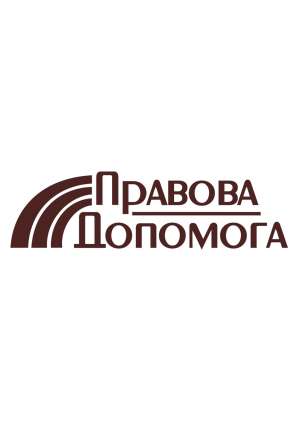Succession to Shares in a British Virgin Islands (BVI) Company (IBC): Legal Considerations for Non-Residents
Cost of services:
Reviews of our Clients
Inheriting a share in an International Business Company (IBC) registered in the British Virgin Islands (BVI) can be a complex process for non-residents. BVI companies are popular among international investors due to favorable tax conditions and the flexibility of corporate law. However, inheritance matters require a meticulous approach, as they involve not only corporate but also international legal considerations. Heirs should be prepared for several challenges, including the preparation of documents to confirm their rights, as well as interactions with regulators and banks.
Considering the complexity of the process, it is essential to seek assistance from professional lawyers with the expertise and experience required to handle such cases effectively. Our extensive experience in managing inheritance matters involving foreign assets allows us to find optimal solutions even in the most challenging situations. In this article, we will highlight the key aspects to consider when inheriting a share in a BVI IBC and explain how our legal team can support you through this process.
You might also like: How Can a Ukrainian Citizen Inherit Assets Located Abroad?
Succession to BVI IBC Shares
The process of inheriting shares in a company in the British Virgin Islands (BVI) is governed by local legislation, specifically the International Business Companies Act (IBC Act), and general inheritance laws. The procedure can be outlined in the following steps:
- Obtaining a Death Certificate: The first step is to confirm the shareholder's death by providing a valid death certificate. This document is essential to initiate the inheritance process.
- Filing a Grant of Probate/Letters of Administration in the Local Court: The heirs must apply to the BVI court to obtain the legal authority to manage the deceased shareholder’s estate. The process varies depending on whether the deceased had a will (Grant of Probate) or passed away intestate (Letters of Administration).
- Estate Valuation and Tax Considerations: While the BVI does not impose inheritance taxes, heirs may be subject to tax obligations in their country of residence. Careful tax planning in the heirs’ jurisdiction of tax residency is crucial to avoid unforeseen liabilities.
- Re-registration of Shares: Once the court issues the necessary order, the heirs can submit an application to the BVI Companies Registrar to transfer the shares into their name.
Challenges of the Inheritance Process Without a Will (via Letters of Administration)
When a shareholder of a company registered in the British Virgin Islands (BVI) passes away without leaving a will (a common scenario in practice), their heirs must undergo the process of obtaining Letters of Administration. This legal document grants the appointed administrator (typically a close relative or a court-appointed individual) the authority to manage the deceased’s assets, including their shareholding in the company.
Letters of Administration is an official document issued by a court in the British Virgin Islands (BVI) to an individual appointed to manage the estate of a deceased person who did not leave a will. This individual is referred to as the administrator. The administrator is granted the authority to manage and distribute the deceased’s assets, including shares in a BVI-registered company. This document is equivalent to a Grant of Probate, which is issued when a will exists, but it applies in cases where the deceased did not leave a will or the will has been deemed invalid. The process of obtaining Letters of Administration typically involves the following steps:
- Filing a Petition in the BVI Court: An heir or another interested relative must submit a petition to the court in the British Virgin Islands (BVI) to appoint an estate administrator. This requires submitting a package of documents, which typically includes:
- Death certificate
- Documents proving familial relationships (e.g., marriage and birth certificates)
- Application for the appointment of an administrator
- Documents detailing the composition of the estate, including ownership shares in a BVI-registered company.
- Appointment of the Administrator: If there are no disputes among the heirs, the court typically appoints an administrator from the deceased’s closest relatives, such as a spouse, children, or other family members. In cases where there are conflicts regarding estate management rights, the court may appoint an independent administrator.
- Valuation of Assets: The administrator is required to evaluate the estate, including any shares in a BVI-registered company. This may involve hiring professional appraisers and auditors to determine the precise value of the assets.
- Issuance of Letters of Administration: After completing the necessary procedures, the court issues Letters of Administration, granting the administrator the legal authority to manage the deceased’s estate and distribute it among the heirs.
Thus, the administrator plays a crucial role in managing the estate of the deceased. Their responsibilities include:
- Asset valuation (the administrator must accurately evaluate all assets of the deceased, including company shares, bank accounts, and other financial holdings)
- Debt settlement (before distributing the estate, the administrator is required to settle all debts of the deceased, including obligations to creditors and tax authorities)
- Asset distribution (after fulfilling all obligations, the administrator allocates the remaining assets among the heirs under the BVI laws on intestate succession)
In practice, obtaining Letters of Administration typically takes 6 to 12 months.
You might also like: Inheritance of LLC Corporate Rights: Securities, Property, and Debts
Applicable Law for Inheriting Shares in a BVI Company
When inheriting shares in a company registered in the British Virgin Islands (BVI), particularly when both the deceased shareholder and the heirs are non-residents, determining the applicable law for distributing the shares can be complex and depends on several factors, including:
- Lex Situs: Under this principle, property is inherited according to the law of the country where it is located. For shares in a company registered in the BVI, the applicable law is the legislation of the BVI.
- Residence of the Deceased: If the deceased shareholder held assets not only in the BVI but also in other jurisdictions, multiple legal systems may apply, depending on the type and location of the assets.
- International Inheritance Laws: In some cases, the laws of the deceased's country of residence (e.g., France, Germany, or other jurisdictions with mandatory inheritance rules) may attempt to apply their inheritance principles, even to foreign assets.
- Conflicts Between BVI Law and the Laws of the Deceased’s or Heirs’ Country of Residence: Disputes may arise if the deceased’s country of residence applies different inheritance rules, such as Sharia law in Muslim countries or mandatory inheritance shares under civil law systems. These conflicts can lead to contradictions in how the inheritance is distributed.[1]
At the same time, when determining the circle of heirs and their respective shares, the BVI courts will primarily rely on the laws of the deceased’s country of residence.
Example:
If the deceased was a Ukrainian citizen, resided in Ukraine at the time of death, and the heirs are also Ukrainian citizens, Ukrainian law will play a decisive role in determining the composition of the heirs and the shares of the inheritance. However, BVI law will govern the actual process of transferring the shares (or stocks) in the company. This includes procedures for formalizing rights to the shares, issuing documents confirming inheritance (e.g., Letters of Administration in the absence of a will), and distributing the shares. In practice, this results in a combination of legal systems:
- Procedural aspects of inheriting shares in a BVI company are governed by BVI law. This includes obtaining documents such as Letters of Administration (if no will is present) and registering shares in the name of the heirs.
- Determination of heirs and their respective shares is governed by Ukrainian law, as the deceased was a Ukrainian citizen and resided in Ukraine at the time of death.
In other words, if the deceased did not leave a will, under Ukrainian law, the heirs of the first order are the spouse, children, and parents of the deceased. Consequently, the shares will be distributed among them in accordance with Ukrainian inheritance laws governing intestate succession. However, while Ukrainian law determines the circle of heirs, the actual process of transferring shares in a BVI company will be governed by the inheritance laws of the British Virgin Islands (BVI). After obtaining confirmation (for example, through a BVI court), the heirs will be able to receive their shares in the company.
You might also like: What to Do If You Inherit Debts Along with the Estate?
Legal Support for Succession to British Virgin Islands IBC Shares for Non-Residents
Inheriting shares in a company registered in the British Virgin Islands (BVI) as a non-resident is a complex process that requires meticulous preparation and adherence to numerous legal nuances. Challenges can arise at every stage, from obtaining a court ruling to re-registering shares and addressing tax implications. To minimize risks and avoid unnecessary delays, it is crucial to plan the inheritance strategy in advance and seek professional assistance. Expert forecasting and legal planning from our legal team can make the inheritance process as straightforward and predictable as possible. Our services include:
- Advisory services on estate planning: analysis of asset structures and development of strategies to simplify the process of transferring assets to heirs.
- Consultations on BVI law and international inheritance law.
- Drafting wills that account for assets held in the BVI.
- Establishment of trusts [2] and foundations [3].
- Preparation for obtaining a Grant of Probate or Letters of Administration.
- Management of corporate documents and share registers, assistance with transferring shares to heirs, and ensuring confidentiality and protection of heirs' rights.
- Support in resolving disputes between heirs.
- Advice on the tax implications of inheritance (while there is no inheritance tax in the BVI, heirs may be subject to taxation in their home countries).
- Guidance on alternative methods of asset transfer, such as gifting assets during the owner’s lifetime or establishing joint ownership and asset management structures.
Contact us today to receive a consultation and start addressing your inheritance matters. Reliability, professionalism, and confidentiality are the core principles of our work, ensuring your peace of mind!
[1] The BVI court will apply its own laws to assets located in the BVI but may take into account the laws of another country for movable property if relevant to a particular case.
[2] A trust can be an effective tool for transferring BVI assets to heirs, helping to avoid complex inheritance procedures while maintaining confidentiality.
[3] A foundation is an alternative to a trust that can also be used for managing and passing on assets to heirs.
Our clients







